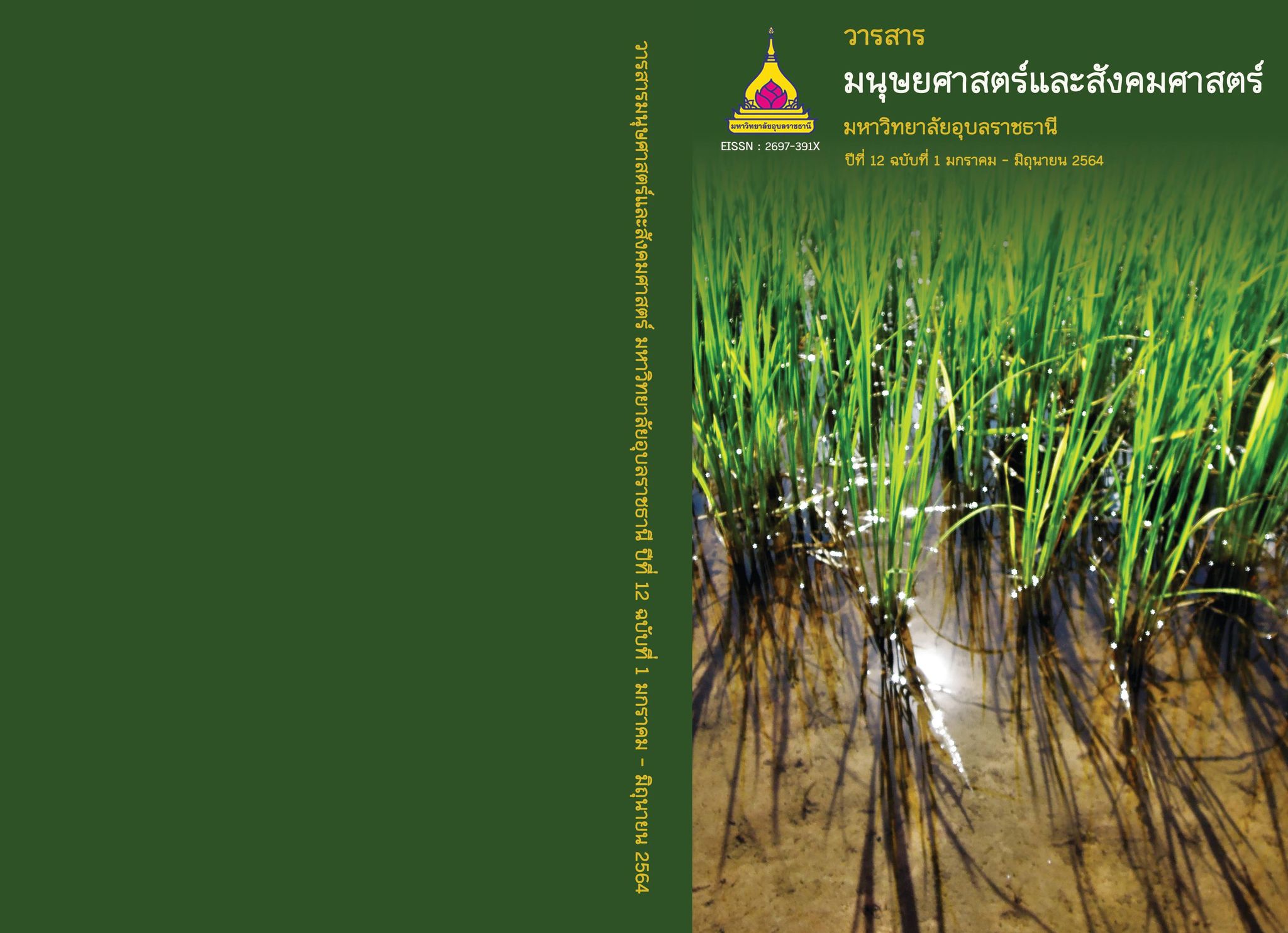การรับรู้วัฒนธรรมองค์การต่อผลการปฏิบัติงานขององค์การ
Main Article Content
บทคัดย่อ
การรับรู้วัฒนธรรมองค์การได้มีการน าเสนอ และตามมาด้วยการศึกษาวิจัยเพื่อทดสอบผลของการรับรู้วัฒนธรรมองค์การอย่างต่อเนื่องจนถึงปัจจุบัน การรับรู้วัฒนธรรมองค์การถูกนิยาม และอธิบายว่า เป็นเรื่องของความเชื่อ เจตคติ และค่านิยม หรือ ความรู้สึกนึกคิด รวมทั้งวิธีปฏิบัติของบุคคลในองค์การที่เป็นตัวก าหนดความแตกต่างของแต่ละบุคคลในแต่ละองค์การ ทั้งนี้ เพื่อเป็นแบบแผนในองค์การนั้นใช้ยึดถือปฏิบัติร่วมกัน และการรับรู้วัฒนธรรมองค์การ จะเป็นการรับรู้ในสภาพจริงของแต่ละองค์การ ผ่านระบบประสาทสัมผัส และกระบวนการท างานของสมอง เพื่อตีความหมาย และการแปลข้อความ หรือการรับรู้ซึ่งท าให้เราทราบว่าสิ่งที่รับรู้มานั้นมีความหมายอย่างไร ในบทความนี้ ผู้เขียนได้ทบทวนความก้าวหน้าของการศึกษา และงานวิจัยที่เกี่ยวข้องกับการรับรู้วัฒนธรรมองค์การต่อผลการปฏิบัติงานขององค์การ โดยน าเสนอและอธิบายถึงประเด็นเรื่องความเป็นมา ความคิดรวบยอด และข้อมูลสนับสนุนของการศึกษา ข้อสรุปหนึ่งที่ได้จากการทบทวนวรรณกรรมที่ผ่านมา คือ การรับรู้วัฒนธรรมองค์การมีการศึกษาอย่างกว้างขวาง และต่อเนื่อง มีความน่าสนใจซึ่งพบว่าการรับรู้วัฒนธรรมองค์การมีส่วนในการพัฒนาศักยภาพของบุคคล และส่งผลต่อการปฏิบัติงานขององค์การโดยรวม
Article Details
บทความที่ได้รับการตีพิมพ์เป็นลิขสิทธิ์ของวารสารมนุษยศาสตร์และสังคมศาสตร์ มหาวิทยาลัยอุบลราชธานี
ข้อความที่ปรากฏในบทความแต่ละเรื่องในวารสารวิชาการเล่มนี้เป็นความคิดเห็นส่วนตัวของผู้เขียนแต่ละท่านไม่เกี่ยวข้องกับมหาวิทยาลัยอุบลราชธานี และคณาจารย์ท่านอื่นๆในมหาวิทยาลัยฯ แต่อย่างใด ความรับผิดชอบองค์ประกอบทั้งหมดของบทความแต่ละเรื่องเป็นของผู้เขียนแต่ละท่าน หากมีความผิดพลาดใดๆ ผู้เขียนแต่ละท่านจะรับผิดชอบบทความของตนเองแต่ผู้เดียว
เอกสารอ้างอิง
Alvesson, M. 2013. Understanding organizational culture. 2nd ed.
California: SAGE Publication.
Alireza, N., Peter, A. and Pantea, F. 2017. “Influence of national culture and balance organization culture on the hotel industry’s performance: International Journal of Hospitality Management, 63: 22-32.
Baser, J. A., Hasan, A., Hassan, R., Sulaiman, J., Ab Hadi, M. Y., and Buntat, Y. 2013. “Relationship between Informal Learning Cultures in Teachers Organisation and Students’ Academic Achievements”. Procedia-Social and Behavioral Sciences, 93: 719-723.
Buchanan, R. 2015. “Worlds in the making: design, management, and the Reform of Organizational culture. She ji: the journal of design”, economics, and Innovation, 1(1): 5-21.
Erdil, T. S. 2015. “Effects of customer brand perceptions on store image and purchase intention: An application in apparel clothing”. Procedia-Social and Behavioral Sciences, 207: 196-205.
Hussein, N., Omar, S., Noordin, F., and Ishak, N. A. 2016. “Learning Organization Culture, Organizational Performance and Organizational Innovativeness in a Public Institution of Higher Education in Malaysia: A Preliminary Study”. Procedia Economics and Finance, 37: 512-519.
Jokonya, O., Kroeze, J. A., and van der Poll, J. A. 2015. “Investigating Users’ Perception of Stakeholder Approach During IT Adoption in Organizations”. Procedia Computer Science, 72: 244-251.
Kantek, F., Baykal, U., and Altuntas, S. 2015. “Culture of nursing school: students’ perceptions”. Procedia-Social and Behavioral Sciences, 174: 1207-1213.
Medina, M. N. 2017. “Training motivation and satisfaction: The role of goal orientation and offshoring perception”. Personality and Individual Differences, 105: 287-293.
Milostivaya, A. 2016. “On Perception of Culture Codes in German Translations (Based on Works by M. Bulgakov)”. Procedia-Social and Behavioral Sciences, 231: 229-236.
Sujan, M. 2015. “An organisation without a memory: A qualitative study of hospital staff perceptions on reporting and organisational learning for patient safety”. Reliability engineering & system safety, 144: 45-52.
Yahya, K. K., Yean, T. F., Johari, J., and Saad, N. A. 2015. “The Perception of Gen Y on Organizational Culture, Religiosity and Corruption in Malaysian Public Organizations”. Procedia Economics and Finance, 31: 251-261.
Zhang, W., Kato, E., Bhandary, P., Nkonya, E., Ibrahim, H. I., Agbonlahor, M., & Cox, C. 2016. “Awareness and perceptions of ecosystem services in relation to land use types: Evidence from rural communities in Nigeria”. Ecosystem Services, 22: 150-160.


